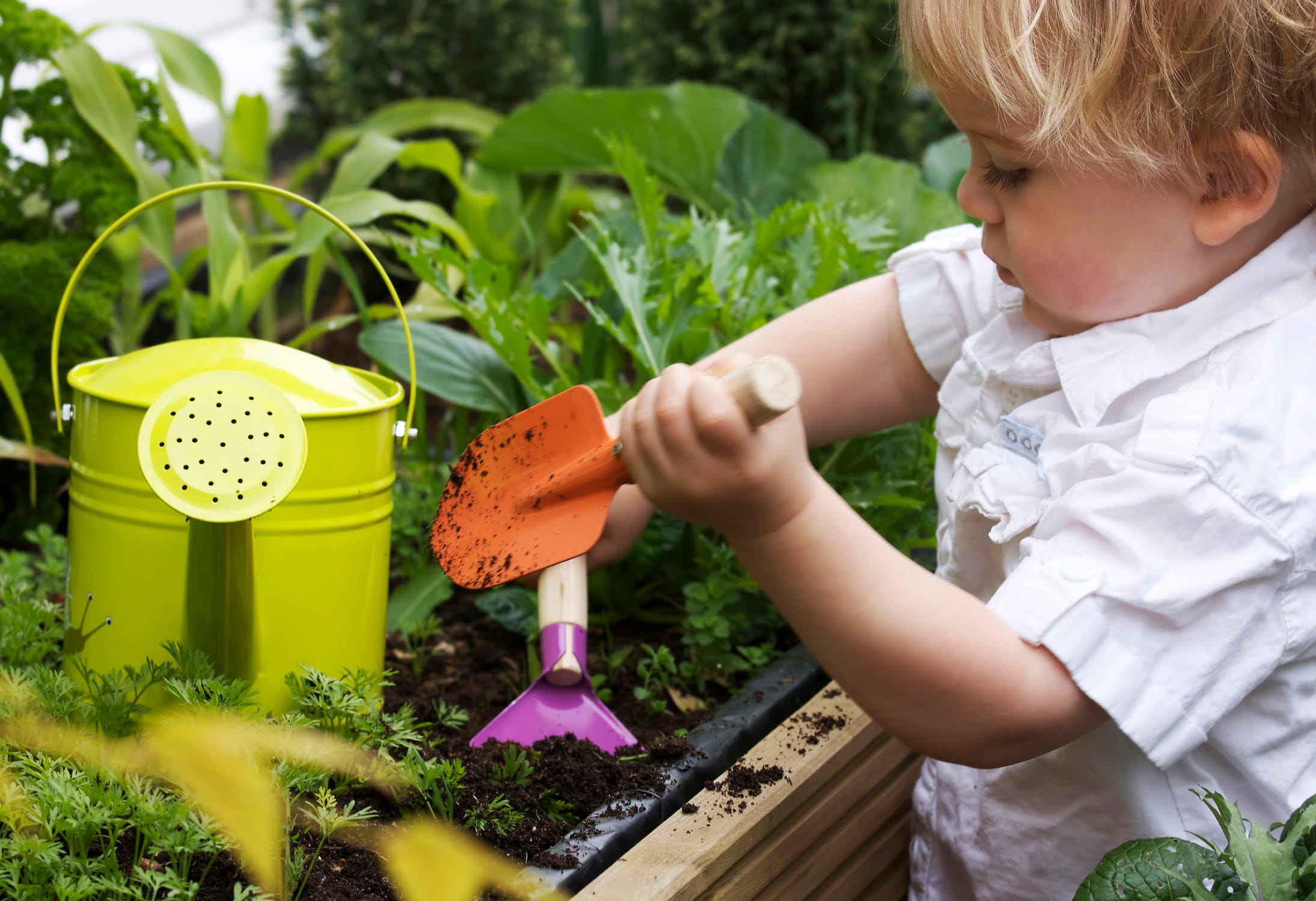If you’re looking for a new activity to do with your children at home, gardening is a great way to keep little ones physically active. It also gets children outside in the fresh air and sunshine, which helps to keep them well!
Check out our top tips for starting your very own garden project below:
- Buy some potting mix or similar from the shops. Soil from outside is also okay for this activity.
- Find some suitable containers in your cupboards or use some spare pots or plant containers and fill these with soil or potting mix.
- You might like to decorate the pots and containers for the plants or make some markers identifying each plant. Support your child to be creative with this, using materials from their ‘creating kit’ in their original designs.
- If you have seeds or seedlings already, plant these. If not here are some things you can germinate:
Carrot tops – Place in a saucer with water. This works best when there is some green shoots at the top of the carrot.
Avocado seeds – Use toothpicks to suspend the seed, broad end down, over a glass that is filled with water. The water should cover about an inch of the seed. Put the glass in a warm place out of direct sunlight and replenish water as needed. You should see the roots and stem start to sprout in about two to six weeks.
Lentils or mung beans – Make sprouts by placing on moistened paper towels and keeping them moist. These should germinate in a few days. Add the sprouts to your sandwich or salad, remembering to wash these before use.
Wheat heads – Place dry wheat or beans in a piece of gauze (old clean tights are good for this), tie the end and place the tail in the water or use damp paper towels in old egg shells.

For some inspiration, you can sit with your child and watch this ABC video about ‘Poppy’s Patch’ – a garden started by young Poppy and her dad when she was just three.
Did you know?
When your child is learning how things grow, they are learning:
- The life cycle of plants – seeds to plants and healthy eating
- Plant care – what plants need to survive
- Sustainable practices – composting, growing our own food
- Scientific, numeracy and literacy concepts – what plants need to grow; how many seeds we plant and how many grow; plotting growth on a graph; exploring books on growing, record the process of sprouting.
- Developing coordination, including hand–eye coordination and fine motor skills.
Click here for more fun activities to try at home with your children!
